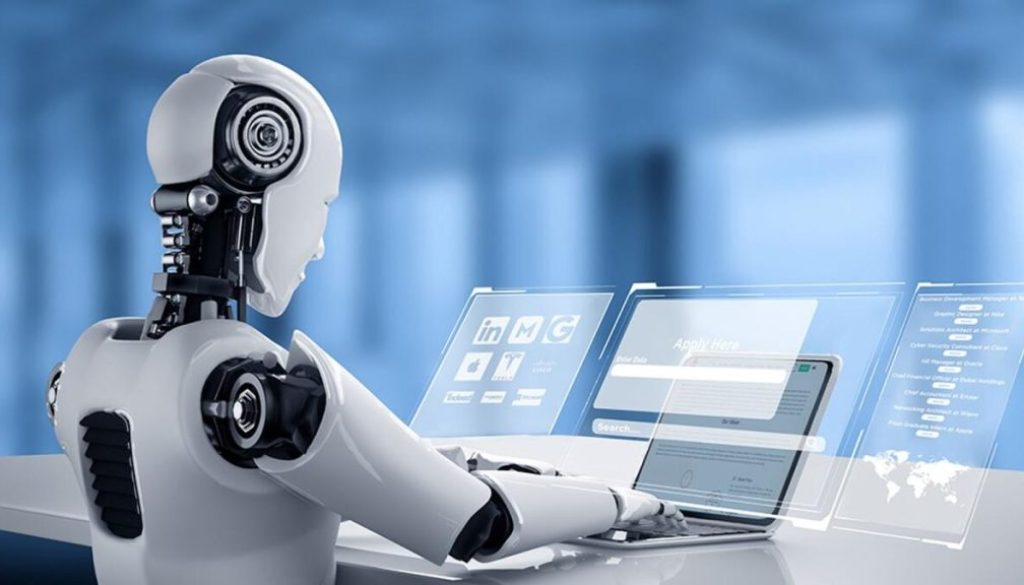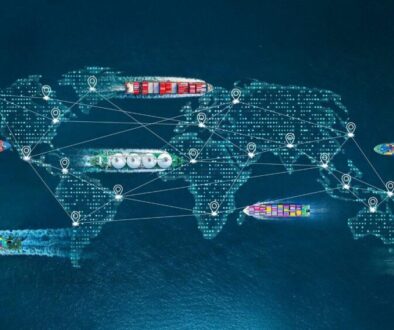AI and the Global Economic Outlook: A Transformative Boost?
Highlights
- The global economy faces challenges like supply issues and high inflation, but AI, particularly LLMs, promises significant productivity boosts and industry transformation.
- AI’s potential lies in enhancing job roles, assisting less-experienced workers, and driving innovation, but it requires balanced policies and data management.
- The Arab World sees AI as a tool for economic diversification, but must address challenges like workforce training and data regulation to fully harness its benefits.
The 21st-century economic narrative has largely been influenced by rapid technological advancements, geopolitical shifts, and socio-economic challenges. Of these, artificial intelligence (AI) emerges as a potential game-changer, promising to redefine productivity paradigms and reshape the economic future. Here, we delve into the current global economic overview, AI’s evolving capabilities, and what this means for economies, particularly in the Arab World.
The economic forecast for the next decade appears gloomy, with supply issues dominating the concerns. A persistent high inflation rate, despite efforts to counter it through aggressive interest-rate hikes, exacerbates global apprehensions. The once robust growth engine of emerging economies, with China at its helm, shows signs of waning. China’s post-pandemic growth, being below its potential, significantly affects its position as a world economic driver.
Compounding these challenges, we witness global supply chain disruptions, thanks to the trifold threats of geopolitical tensions, pandemic repercussions, and the undeniable specter of climate change. Governments, in a bid to stabilize their economies, are considering expensive supply-chain diversifications. Moreover, the ever-mounting sovereign-debt levels further constrict countries from pursuing growth-oriented public investments. This scenario presents a gloomy backdrop, with supply constraints and rising costs threatening to stifle growth.
Enter AI, with its promise of a much-needed productivity boost. The evolution of AI from rudimentary recognition tasks to the dawn of large language models (LLMs) like OpenAI’s ChatGPT suggests profound economic implications. LLMs, with their ability to understand language, switch between domains, and their vast training data, offer a versatile platform across the knowledge economy. Case studies, such as the one by MIT economist Erik Brynjolfsson, already indicate potential productivity boosts, with a noted 14% increase in sectors like customer service.
However, AI’s promise isn’t just limited to improving productivity. An intriguing “leveling-up” effect emerges as AI assists less-experienced workers, encapsulating and disseminating accumulated system experiences. This digital-assistant model can redefine job roles, making them more efficient and possibly reshaping industries.
Yet, with these promises come challenges. The allure of full automation brings with it concerns of human displacement, and the nascent nature of AI means mistakes and biases are inherent. Policymakers find themselves at a juncture where they must ensure broad access to LLMs and establish collaborative data management principles that don’t stifle innovation.
AI Outlook in the Arab World
For the Arab World, a region known for its oil-based economies and ongoing diversification drives, AI presents both opportunities and challenges. The Gulf states, with their ambitious visions like Saudi Arabia’s Vision 2030 or the UAE’s AI Strategy 2031, recognize AI’s potential in propelling them into a post-oil era. By integrating AI into their economic fabric, these nations could potentially leapfrog developmental stages, achieving economic diversification and boosting employment, especially among the youth.
However, challenges abound. Ensuring the local workforce has the necessary skills to harness AI’s potential remains a priority. Similarly, data regulation, an area where many Arab countries are still formulating guidelines, becomes crucial. Balancing innovation with security and cultural values will determine how effectively the Arab World harnesses the AI wave.
In conclusion, while the global economic forecast may seem bleak, the transformative power of AI offers a glimmer of hope. The Arab World, like the rest of the globe, stands at the threshold of an AI-driven economic renaissance. Effective policymaking, investment in education, and international collaboration could well chart the path to a more prosperous future.



